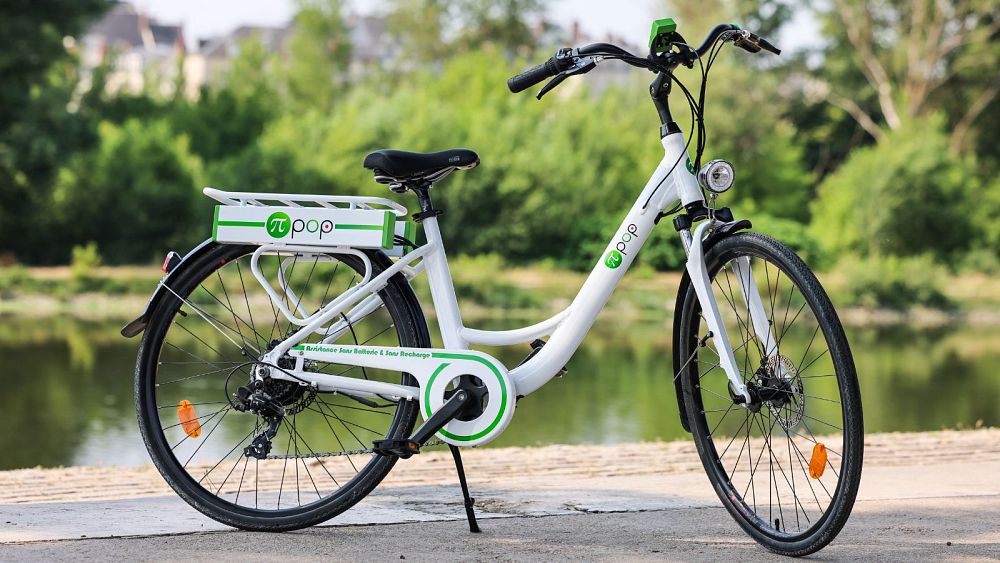Equipped with a supercapacitor
The inventor, with training in electronics, has designed and patented a electric bicycle called Pi-Pop which does not use lithium batteries, but supercapacitors.
“The system is charged when driving is easy and when the bike brakes, thanks to the engine brake; the energy is used when it is needed,” Lelièvre, director of STEE, the company behind the bicycle, explains to Euronews Next.
Simply put, a supercapacitor works by storing energy electrostatically, that is, through a slowly moving charge. On the other hand, a lithium battery stores energy as a chemical reaction. In other words, a supercapacitor can store and release energy very quickly when needed. In the case of your bicycle, this means storing energy when the person pedals or brakes and using it to assist in more difficult actions, such as restarting or going uphill.
Lelievre calculates that the assistance offered to the cyclist by the bicycle's supercapacitors is enough to withstand a 50 m difference in level if it is previously loaded on a level surface, making it suitable for around 80% of European cities.
The supercapacitor concept is not an innovation in itself; The first were manufactured in the late seventies. Today they are used in photovoltaic systems (such as solar panels), digital cameras and some hybrid or electric vehicles to improve their performance.
For Lelièvre it made sense to use this technology on bicycles.
A symbol of sobriety
According to the inventor, the 20 kg Pi-Pop “is really a symbol of sobriety.”
“Always wanting more, that is, wanting to go faster, add more energy… this is a dead end,” he said.
No rare earth materials are used in the manufacture of the bicycle, since the supercapacitors are made of carbon, conductive polymer, aluminum sheets and pulp, materials for which recycling processes already exist.
There is also no need to wait for the bike to charge, another advantage compared to classic electric bikes. The company also claims that the lifespan of the supercapacitor is between 10 and 15 years, compared to five or six for a lithium battery.
The bicycle, now in its third generation, is currently assembled in Orleans. For Lelièvre, whose professional career was forged in the French electronics industry, it was important that it be produced locally in his native France.
“I think we cannot innovate if we lose control of production,” he says. “When we talk about sustainable development, ecological transition and energy transition, we have to create jobs,” added Lelièvre, whose company employs 25 people.
Currently, Pi-Pop produces 100 bicycles per month. In the future, the company aims to produce a thousand bicycles per month until 2024.
Lelièvre also has European ambitions.
“In 2025, we want to target the European market, we are currently discussing possible fundraising,” he said.
The EU imported 1.2 million electric bicycles and 5.2 million non-electric bicycles (five times more than those exported), according to Eurostat data. Furthermore, the expansion comes at a time when Europe wants 2024 to be the “Year of the Bicycle.”
Image:Getty Images










